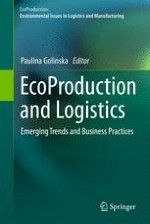2013 | OriginalPaper | Chapter
Is It Possible To Generate Added Value Through A Higher Environmental Proactivity Orientation? A Practical Analysis of the Spanish Ceramic Industry
Authors : Conrado Carrascosa-López, María-del-Val Segarra-Oña, Ángel Peiró-Signes, Luis Miret-Pastor, Baldomero Segura-García-del-Río
Published in: EcoProduction and Logistics
Publisher: Springer Berlin Heidelberg
Activate our intelligent search to find suitable subject content or patents.
Select sections of text to find matching patents with Artificial Intelligence. powered by
Select sections of text to find additional relevant content using AI-assisted search. powered by
